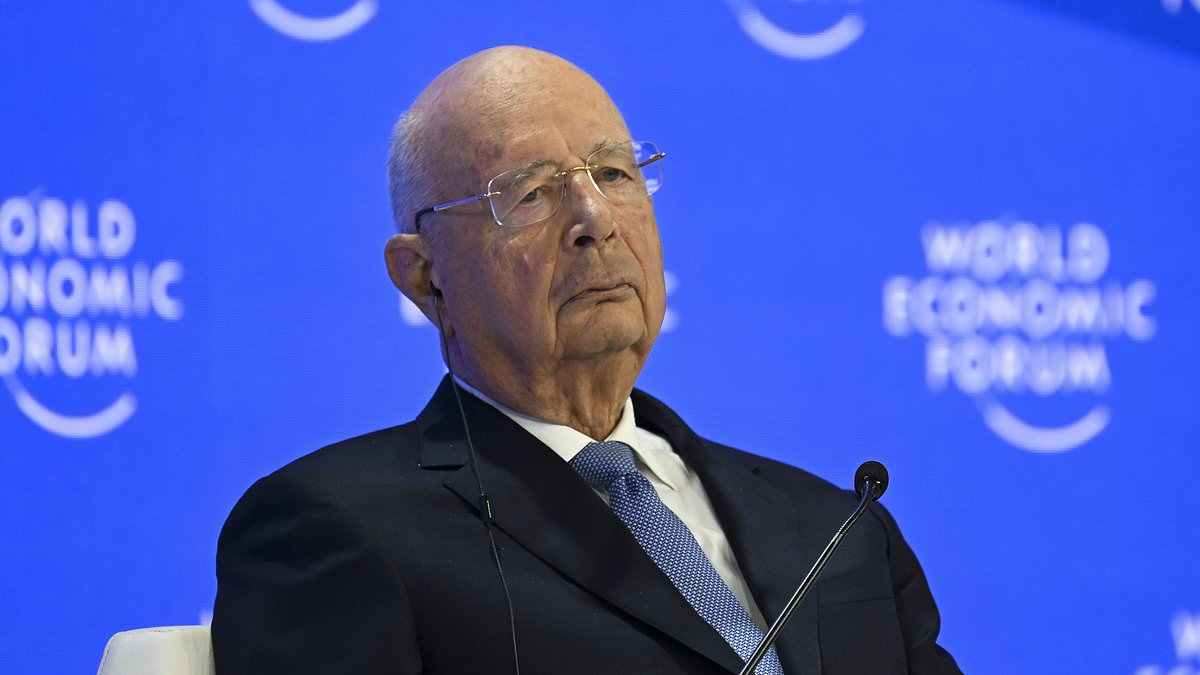Founder of the World Economic Forum Klaus Schwab reportedly exhibited a pattern of misconduct during his tenure as the multinational organisation’s most senior executive, according to preliminary findings of an internal investigation.
The probe was launched by the WEF board in April in response to whistleblower complaints over alleged unauthorised spending, bullying and inappropriate treatment of female staffers by 87-year-old Schwab.
It came just two days after the German economist – who denies the claims – stepped down from his role as the Forum’s top executive with immediate effect after 55 years over Easter weekend.
Preliminary findings from the probe are said to have found evidence that Schwab had acted inappropriately in his role, according to a report by the Wall Street Journal based on documents and interviews with people familiar with the investigation.
Interviews conducted amid the probe reportedly found that Schwab repeatedly used fear and intimidation to manipulate WEF employees and treated the organisation like a ‘fiefdom’, while making ‘suggestive’ remarks to a senior female executive.
The findings also allege spending malpractice by his wife Hilde Schwab, 79, who reportedly filed more than $1 million in travel expenses deemed questionable by investigators, along with several foreign trips seemingly unrelated to business.
Schwab, through an intermediary, rejected the probe’s preliminary findings, according to WSJ. ‘Throughout this journey, Hilde and I never used the Forum for personal enrichment,’ Schwab said in a written statement.
has contacted WEF for comment.
Founded by Schwab in 1971 as the European Management Forum, WEF began as a small gathering aimed at improving European business by enlisting the support of successful American corporations.
Over the decades, it has transformed into a high-profile annual summit in Davos, Switzerland, where CEOs, leading entrepreneurs and minds from various sectors converge to debate the world’s biggest challenges, from climate change and technological disruption to geopolitical instability and inequality.
It has also been harshly criticised as a symbol of globalisation and an exclusive club for the wealthy and powerful that exercises outsized power over policymakers.
The probe was launched by the WEF after the WSJ published allegations that the Schwab family had long mixed their personal affairs with Forum resources.
The Forum said its board – which includes former US Vice President Al Gore, Jordan’s Queen Rania and European Central Bank President Christine Lagarde as members – agreed to a decision by its risk and audit committee to open the probe.
The allegations emerged days after Schwab’s retirement as WEF chairman and his replacement by former Nestle Chairman and CEO Peter Brabeck-Letmathe.
Homburger, a Swiss law firm enlisted to lead the probe, is expected to weigh Schwab’s response before finalising its findings and presenting recommendations to WED trustees by the end of August.
According to people familiar with the process, the full board of trustees will then submit the report to Swiss regulators who oversee nonprofits for further investigation, and may also decide to hand over details to prosecutors.
Meanwhile, Schwab’s representatives confirmed to the Financial Times that the 87-year-old has filed a criminal complaint against the whistleblowers’ ‘stupid and constructed’ allegations.
The bombshell allegations brought against Schwab come off the back of mounting speculation over the purpose of the yearly WEF summit in the Swiss Alps.
The organisation bills itself as the world’s leading forum for ‘public-private cooperation’ and stresses its commitment to ‘facilitating progress on systemic challenges… upholding the highest standards of governance and moral and intellectual integrity’.
But detractors say the summit is little more than a networking event for the world’s wealthiest corporate leaders and political decision-makers which serves only to increase the influence of private companies to shape public policy.
In 2024 – the year WEF’s summit was focused around ‘rebuilding trust’, Oxfam released a report highlighting wealth inequality continues to grow.
The report released in January last year pointed out that the combined fortunes of the world’s five richest men had more than doubled to $869 billion since 2020, while five billion people have been made poorer.
It estimated that 148 top corporations made $1.8 trillion in profits, 52 per cent up on the 3-year average, allowing hefty pay-outs to shareholders even as millions of workers faced a cost-of-living crisis as inflation led to wage cuts in real terms.
‘This inequality is no accident; the billionaire class is ensuring corporations deliver more wealth to them at the expense of everyone else,’ said Oxfam International interim Executive Director Amitabh Behar.
Tales of debauchery and excess in Davos have also been widely reported.
Escort agencies revealed the demand for prostitutes and sex parties around the conference has increased dramatically in recent years, with event attendees stipulating that their sex workers must sign NDAs.
‘Since the start of the WEF, we’ve seen around 300 women and trans women booked in Davos and the surrounding area,’ Andreas Berger, spokesman for Titt4tat, told earlier this year, versus 140 women the year prior.
‘What has changed is that a lot of women in and around Davos now have to sign NDAs [non-disclosure agreements.’
